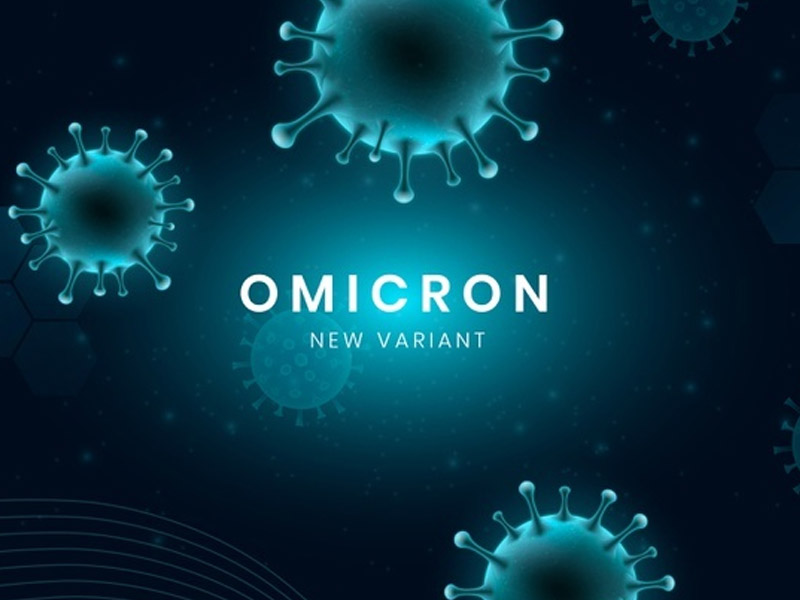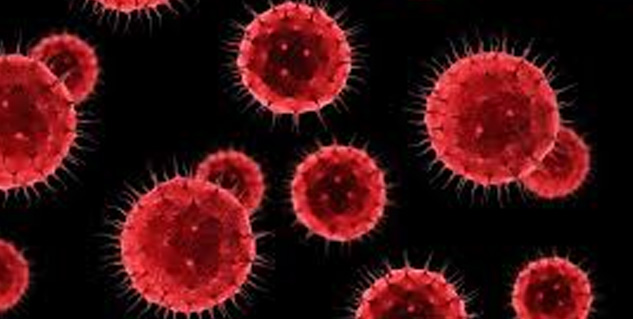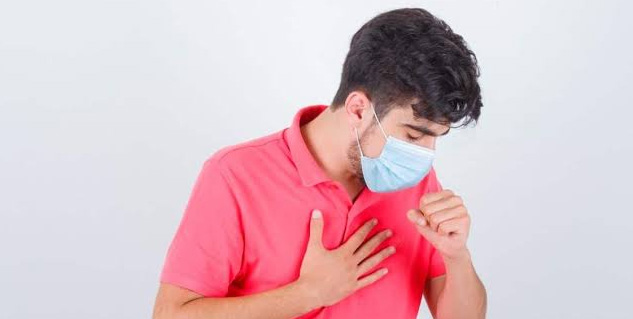
WHO has classified Omicron Virus as a “variation of concern”(VOC). It is due to the hazard it poses in terms of causing a global catastrophe. Compared to the original virus, which had several proteins/receptors on its surface, this variation exhibits a few structural differences. WHO has coined the term Omicron (B.1.1.5129) from the Greek alphabet series. In biology, anything new will be considered a wild type. For example, the first Covid 19 strain discovered came under this. All the variants severe enough to cause illnesses or pandemic situations were dubbed variants of concern and named like B1.1, B1.1.5141, and so on. Onlymyhealth editorial team spoke to Dr. Pruthu Narendra Dhekane, Consultant- Infectious Diseases, Fortis Hospital, about the highly transmissible omicron variant.
Table of Content:-
WHO created a nomenclature system using greek alphabets such as alpha, beta, and delta, etc. When a virus is born, it usually has a few structural differences in its versions, such as amino acids or proteins, that distinguishes it from the others. The delta variant had many amino acids sequence making it more transmissible and creating a massive second wave in several nations, including India. Changes in the amino structure of Omicron cause changes in its genetic make-up as well. In human cells, it is mostly observed in the RBD receptors. These bind the domain of spike proteins that bind to ACE2 receptors. It has the potential to cause reinfection in persons who have already been infected or vaccinated. It may cause mild, moderate, or severe infections in people already infected or vaccinated with antibodies.
Things to know about omicron variant

Cases of omicron variant cases in India are on a rise since few days. Personal protective equipment or preventive measures for Covid-19 such as masks, hand hygiene, and physical distance norms are the only things that have stayed constant during the last two years. Whatever modifications may appear, follow these three social safeguards no matter what. Even if new varieties begin to appear, no one should relax their guard.
Also read: WHO Says, Omicron Less Severe Than Delta, Vaccines To Stay Effective
There is no public body or authorized body that does not adhere to the social safety regulations. One can never be too cautious, vigilant, or responsible. Don't be concerned. Being concerned entails accountability. Vaccines will be more effective at preventing virus infection and spread. Here are some things that you should know about Covid-19's Omicron variant:
1. Is it a more serious case than Covid 19?
The severity is mainly dependent on two things. The first is the virus's ability to spread. Scientists have determined that Omicron is more transmissible than delta, making it more dangerous. It can lead to the possibility of overwhelming healthcare structures in many areas. The severity is the second factor. As of yet, the information received shows no signs of serious disorders developing. The majority of people may still experience mild to moderate symptoms. However, a small percentage may be severely affected.
2. Are fully vaccinated people at a lesser risk?
Fully vaccinated persons are supposed to have antibodies that kill the virus if it strikes again, as well as antibodies that inhibit a new covid infection from adhering to the human body's surface cells. There is insufficient evidence to prove that a fully vaccinated person is immune to this variation. Vaccinating many people reduces the severity of illnesses.

3. What do we need to know about the virus?
Viruses, like many other species in the environment, such as bacteria, parasites, and fungus, change with time, which we refer to as evolution. Bacteria, viruses, and other microbes go through a rapid evolution process. The virus's molecular structure constantly alters to live and multiply in the environment. Viruses have an impact on living organisms, particularly humans.
We attempt to treat them with a variety of drugs. Viruses, like other living things, frequently change their molecular configurations. A variation is defined as a bit of change in the molecular structure of the virus. In contrast, a mutation is defined as a significant change in the molecular structure of the virus that results in a significantly different structure. As a result, a natural part of evolution occurs for all of us.
Also read: Omicron Variant Of COVID-19 Symptoms: Here’s What Doctor From South Africa Says
4. Is Omicron transmissible?
Based on the data we've received so far, labs predict that the new COVID-19 Omicron variant will be more transmissible than the previous variant, based on molecular studies such as amino acid sequencing, particularly in the SARS-CoV-2 spike protein, which is the main target that binds to the ace2 receptors. If a big alteration is conceivable, it may be more transmissible. Regulatory authorities have yet to examine, verify, and confirm tangible facts based on research or observations in specific nations. So it's impossible to conclude that it's more transmissible right now, but potentially, it might be.
5. Can the combination of Omicron and Delta result in a super strain?
Omicron and delta cannot be compared as two different opponents pooling their forces to produce a stronger force. Scientists and molecular biologists have considered a dubious lab in vitro scenario.
6. What is viral recombination? And, to what extent is it dangerous?

There is no further confirmation or documentation of two types of different variations mixing and generating a super strain. Viruses, on the whole, change. They will have variants, which will lead to mutations. When other mutations and variants get together, they may generate a newer variant that is either more lethal or even more naive, meaning it will not impact humans. It'll likely shift hosts based on chemical structures. We don't have any verifiable proof to speculate on as of the right moment.
7. What measures should we take to avoid further mutations or virus spread?
Since the pandemic's beginning, the response to this question has been the same. Using a face mask, maintaining physical distance, good hand washing, and hygiene procedures that have been proved effective in controlling the spread of COVID-19 should be used to prevent the transmission of infection, regardless of which strain or mutation came in. These standard metrics have always existed and will continue to exist.
Also read: Worried About Omicron And Its Aftermaths? Here Are 8 Tips By Expert To Reduce COVID Risk
The mutations in COVID-19 are constantly changing, but these three golden measures will never change. Please continue to take social steps, wear the mask, keep physical distance, and do frequent hand washes and hand hygiene until we understand entirely COVID-19. Apart from COVID-19, these precautions will aid in the prevention of the transmission of other viruses disseminated via aerosolized routes. Please follow the regular procedures since they will keep you safe.
Image credits: Freepik
How we keep this article up to date:
We work with experts and keep a close eye on the latest in health and wellness. Whenever there is a new research or helpful information, we update our articles with accurate and useful advice.
Current Version
